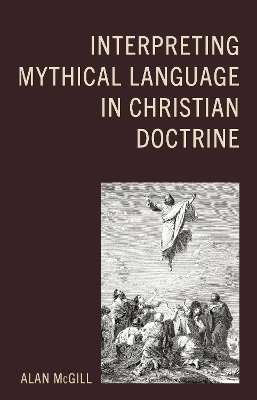
Interpreting Mythical Language in Christian Doctrine
Seiten
2024
Lexington Books/Fortress Academic (Verlag)
978-1-6669-5569-9 (ISBN)
Lexington Books/Fortress Academic (Verlag)
978-1-6669-5569-9 (ISBN)
This book addresses the mythical language that, whether recognized or not, infuses formulations of Christian doctrine, arguing that unwarranted expectations that such language expresses historical, ontological, or scientific truth obfuscates the true power of myth to mediate an engagement with mystery to an extent that other genres cannot.
When Christians profess faith in the teaching that Jesus “ascended into heaven” and is “seated at the right hand of the Father”, what do they mean? And what kind of truth is denoted by the narratives of the battle in heaven, the Fall, the Exodus, Annunciation, the theophanies of the gospels, and Second Coming? Some may interpret these literally and ascribe to a model of faith that quite happily runs contrary to reason and life experience. Many, however, recognize that the language in question is symbolic but it is not always apparent as to what is being symbolized and how such symbolism relates to objective truth claims. In response, Interpreting Mythical Language in Christian Doctrine draws upon the insights of thinkers including St. Thomas Aquinas, Paul Ricoeur, and Carl Jung so as to rescue Christian doctrines expressed through mythical language from an unwarranted expectation that they convey historical, ontological, or much less, scientific truth – or equally concerning, an assumption that these symbols relate only to a subjective form of meaning so that no interpretation is wrong. This book endeavors to unleash the true power of myth to engage with mystery and express meaning in a manner that surpasses the capacities of other genres.
When Christians profess faith in the teaching that Jesus “ascended into heaven” and is “seated at the right hand of the Father”, what do they mean? And what kind of truth is denoted by the narratives of the battle in heaven, the Fall, the Exodus, Annunciation, the theophanies of the gospels, and Second Coming? Some may interpret these literally and ascribe to a model of faith that quite happily runs contrary to reason and life experience. Many, however, recognize that the language in question is symbolic but it is not always apparent as to what is being symbolized and how such symbolism relates to objective truth claims. In response, Interpreting Mythical Language in Christian Doctrine draws upon the insights of thinkers including St. Thomas Aquinas, Paul Ricoeur, and Carl Jung so as to rescue Christian doctrines expressed through mythical language from an unwarranted expectation that they convey historical, ontological, or much less, scientific truth – or equally concerning, an assumption that these symbols relate only to a subjective form of meaning so that no interpretation is wrong. This book endeavors to unleash the true power of myth to engage with mystery and express meaning in a manner that surpasses the capacities of other genres.
Alan McGill is chair of theology at Cristo Rey Atlanta Jesuit High School and a member of the Religious Studies faculty at Georgia Gwinnett College.
Dedication
Introduction
Chapter 1: From Mythical Motifs to Doctrinal Formulae
Chapter 2: What Do Christians Mean When They Profess their Faith through Mythical Language?
Chapter 3: From the “gods” of Myth to the Revelation of God
Chapter 4: Jesus: Theology, Theodicy, and Theoxeny
Chapter 5: Resurrection, Myth, and History
Chapter 6: In Memory of a Mother: When Poetry Becomes Doctrine
Chapter 7: Angels, Fallen Angels, and a Hermeneutical Fall
Chapter 8: The Mythic Future: Ascending, Descending, and the Depths of the Collective Unconscious
Conclusion
Bibliography
About the Author
| Erscheinungsdatum | 22.08.2024 |
|---|---|
| Sprache | englisch |
| Maße | 160 x 239 mm |
| Gewicht | 431 g |
| Themenwelt | Religion / Theologie ► Christentum ► Kirchengeschichte |
| ISBN-10 | 1-6669-5569-8 / 1666955698 |
| ISBN-13 | 978-1-6669-5569-9 / 9781666955699 |
| Zustand | Neuware |
| Haben Sie eine Frage zum Produkt? |
Mehr entdecken
aus dem Bereich
aus dem Bereich
von Athanasius bis Gregor dem Großen
Buch | Softcover (2024)
C.H.Beck (Verlag)
12,00 €
eine Geschichte der christlichen Kunst
Buch | Hardcover (2024)
C.H.Beck (Verlag)
32,00 €


